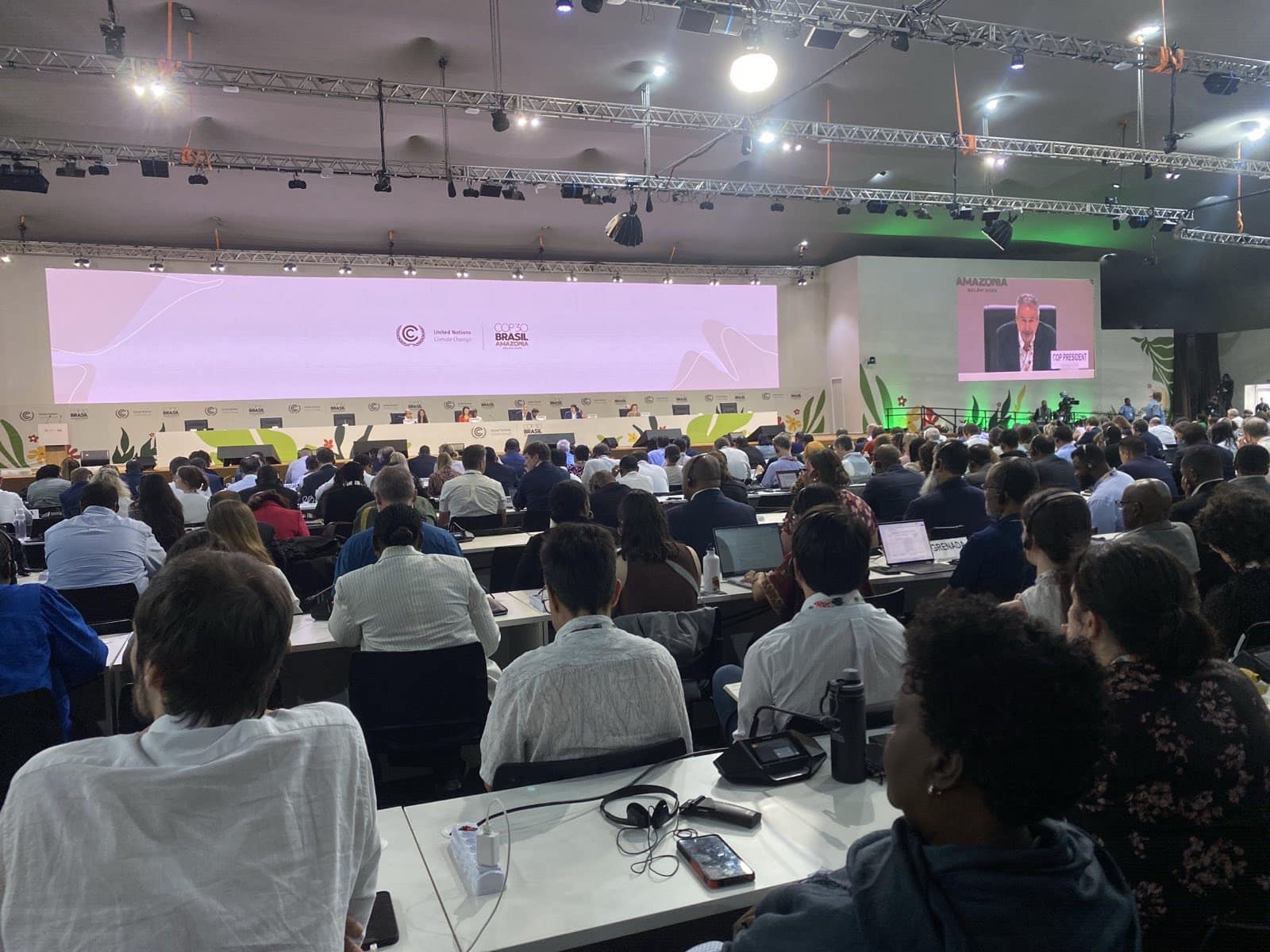COP30 Offers Too Little as Global Solidarity Fades, Failing Vulnerable Communities
COP30 has failed to live up to the spirit of mutirão—the global solidarity needed to confront the accelerating climate crisis. The outcome in Belem exposes critical gaps in ambition and political will. Adaptation finance remains insufficient and there is no certainty about the – in principle – agreed scale-up leaving vulnerable countries with little support to bear the brunt of an already changed climate they had little hand in creating.
Despite broad recognition that adaptation to the impacts of climate change is critical, developing countries’ demand to triple adaptation finance to at least $120 billion a year by 2030 remain unmet as developed countries would not provide a clear commitment
At the same time, the outcome provides no clear roadmap to transition away from fossil fuels, threatening the fault line of 1.5°C: without stronger action now, the world is heading towards high temperatures where climate justice is unattainable. The absence of a clear signal to phase out fossil fuels undermines any prospect of a fair and effective global and just transition.
COP30 delivered a new Belém Gender Action Plan — an important step forward, but without real finance or accountability, women and girls on the frontlines are still left waiting for meaningful support.
CARE International remains concerned that governments are not moving beyond rhetoric and are failing to deliver predictable, grant-based finance, a credible pathway away from fossil fuels, and climate plans that reflect the urgency of the crisis.
QUOTES
Marlene Achoki, Global Climate Justice Policy and Advocacy Lead, CARE International
“This outcome is a failure, and failure to act is negligence. Communities are already living the climate crisis, and millions are paying the price. Adaptation is essential to protect lives and safeguard economies, yet at a COP30 billed as the ‘COP of Truth,’ outcomes fall far short. There is no clarity on how much money is channeled to adaptation, where it will come from, its quality, or how progress will be measured. Without adequate, public, grant-based finance and ambition, climate change will keep multiplying poverty and deepening inequality, especially for women and girls fighting daily for safety and dignity.”
Chikondi Chabvuta, Southern Africa Regional Advisor, CARE Malawi CMP
“COP30 delivered the Belém Gender Action Plan, a milestone, but not the breakthrough LDCs and all developing countries fought for. We asked for binding gender-responsive finance, direct access for grassroots women, and accountability. Instead, we got voluntary language and dialogues. CARE’s programs from the Village Savings and Loans Associations (VSLAs) models to gender-responsive adaptation planning, are ready to operationalize these commitments, but without real resources and enforcement, women and girls on the frontlines remain underfunded. Climate justice must move beyond promises to delivery, and we stand ready to turn words into action if the finance flows.”
Mrityunjoy Das, Deputy Director, Humanitarian and Resilient Futures, CARE Bagladesh
“Despite including stronger language on avoiding catastrophic temperature rise, the Mutirão decision text falls far short of aligning with the 1.5°C limit. It lacks a just and equitable roadmap for transitioning away from fossil fuels and for halting and reversing forest loss by 2030. The launch of the ‘Belém Mission to 1.5’ and the voluntary ‘Global Implementation Accelerator’ is not reassuring without clear reference to the first Global Stocktake and its sectoral outcomes, leaving the package high-level and lacking the necessary detail on modalities.”
Obed Koringo, Climate Policy Advisor, CARE Denmark
“Frontline communities are bearing the harshest climate impacts, from sudden disasters to slow-onset crises — yet COP30 still failed to give Loss and Damage the urgent attention they need. The Barbados Implementation Mechanism may be a step forward, but the Fund for Responding to Loss and Damage remains woefully underfunded. A new replenishment cycle is welcome, but it means nothing without enhanced contributions from developed countries to deliver long-term, predictable and timely finance for those hit the hardest.”
Kerime van Opijnen, Policy Advisor Gender Equality and Climate Justice, CARE Nederland
“The adoption of a new Belém Gender Action Plan is an important step toward making climate action inclusive and accessible to all. We welcome the recognition of care work, women’s health, and violence against women and girls as key issues that must be addressed. While the exclusion of human rights language is worrying and the lack of direct finance highly disappointing, this text still represents progress and can help move us toward true climate justice.”
John Nordbo, Senior Advisor on Climate Change, CARE Denmark
“COP30 delivers a weak outcome at a moment that demands real leadership. There is no commitment to phase out fossil fuels and no guarantee that wealthy countries will deliver the climate finance they have repeatedly promised. The text merely calls for efforts for a tripling of adaptation finance by 2035, which is far below what is needed and weaker than last year’s climate finance goal. The EU played a central role in engineering this failure. By refusing to guarantee delivery on past finance promises, the EU undermined trust and blocked the creation of an alliance of ambitious countries needed to raise the bar.”
//ENDS
Notes to editors:
- CARE International works in more than 100 countries, focusing on humanitarian response, development, climate resilience, and gender equality.
- For interviews or further information, please contact:
Monica Ellena – CARE International – Climate Justice Communication Lead
Email: ellena@careinternational.org
Phone / Signal: +44 (0)7876 277 898 - WhatsApp: +39 3384458008
COP30 Offers Too Little as Global Solidarity Fades, Failing Vulnerable Communities
CARE’s Final Press Release for the COP30
